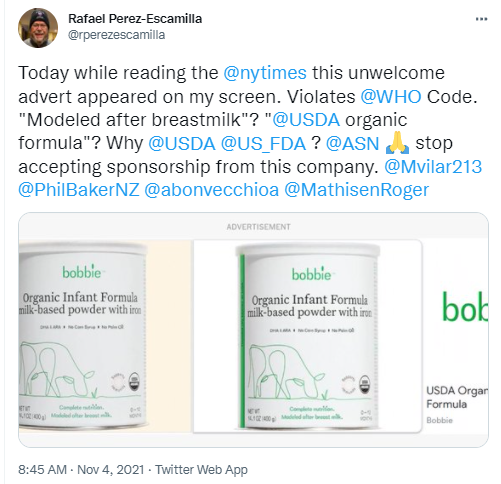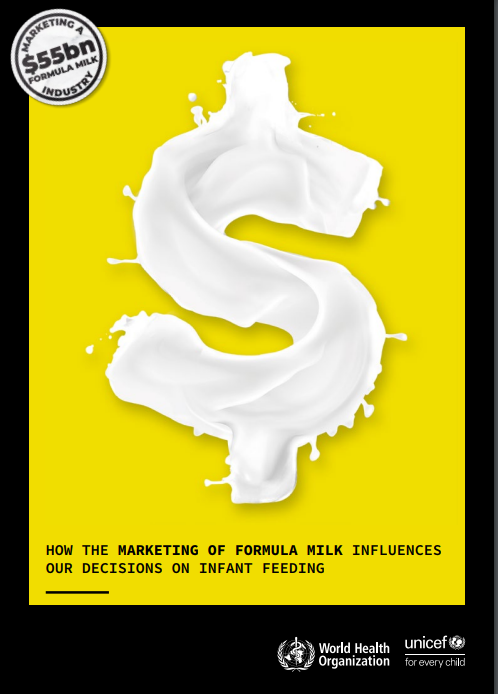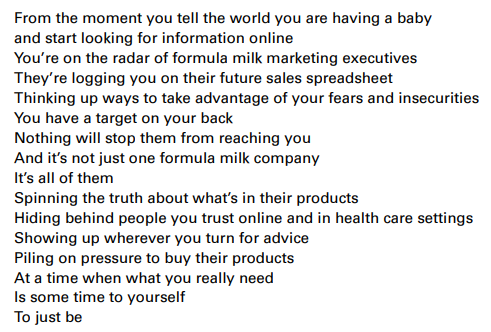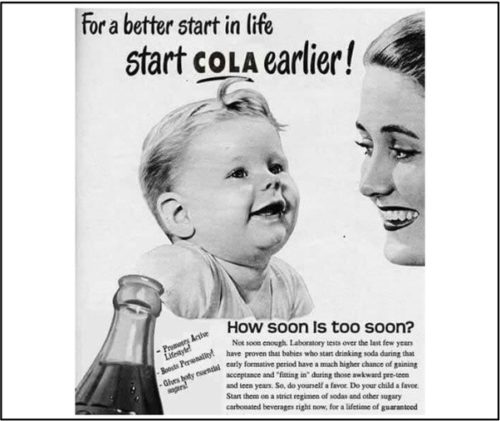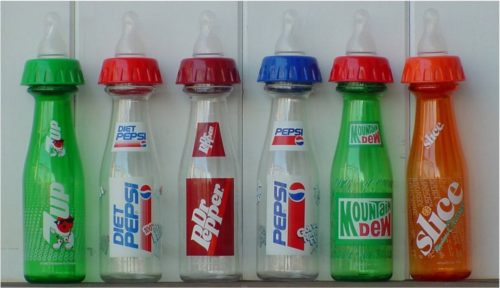The Consensus Statement: Consensus of the Brazilian Association of Nutrology on Milky Feeding of Children Aged 1–5 Year Old. International Journal of Nutrology. 2020; 13 (01): 002-016.
Purpose: “To publish a consensus on the milky feeding of children aged between 1 and 5 years old, in the face of the nonuniformity of indication and the lack of standardization, in Brazil, on the nomenclature and classification of milky products produced for this stage.”
Method: Literature review and members discussion.
Result: Nutritional deficiencies are common among Brazilian children.
Recommendations (among many others)
- Recognize milk-based weaning products as a category separate from infant formula.
- Consider milk-based weaning products as a strategy for providing additional nutritional advantages over cow’s milk (they they are fortified with essential nutrients).
Conflicts of interest: The Brazilian Association of Nutrology has received financial support from the company Danone Nutricia to enable this consensus to be achieved by supporting the expenses inherent to the execution of the project. The authors expressly state that there was no interference by the company Danone Nutricia in the content of the material and all the information contained in the consensus represents exclusively the views of the authors and of the Brazilian Association of Nutrology, based on the bibliographic review used for its execution.”
Acknowledgments: The Brazilian Association of Nutrology thanks the company Danone Nutricia for the financial support that allowed this consensus to be reached.
Comments: Danone paid for a consensus statement that conveniently promotes its formula and weaning products. The company markets its products (overtly and by implication) as having nutritional advantages over breastfeeding and traditional foods.
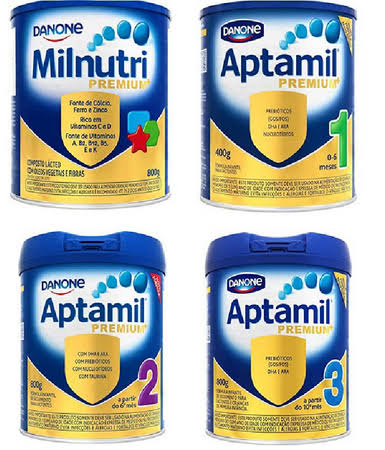
The consensus statement supports that implication, even though it also recommends promotion of breastfeeding and control of misleading marketing.
Some other points to note:
- The Brazilian Association of Nutrology members are not nutritionists; they are medical professionals who specialize in nutrition.
- The statement does not say much about healthy diets for children or the need to minimize kids’ intake of ultra-processed foods. Instead, it mandates Danone’s milk-based products, which meet the definition of ultra-processed (industrially produced, made with ingredients unavailable in supermarkets, cannot be made in home kitchens).
- Here, for example, is the ingredient list for Aptamil 2.
Dairy-based blend (of which 28% is fermented) [Lactose (from milk), Vegetable oils (Palm oil, Coconut oil, Rapeseed oil, Sunflower oil, High oleic sunflower oil), Skimmed milk, Demineralised whey (from milk), Whey concentrate (from milk), Calcium phosphate, Fish oil, Potassium chloride, Potassium citrate, Calcium carbonate, Choline chloride, Vitamin C, Sodium citrate, Emulsifier (Soy lecithin), Inositol, Magnesium chloride, L-Carnitine, Antioxidant (Ascorbyl palmitate), Nicotinamide, Panthothenic acid, Vitamin E, Riboflavin, Thiamin, Vitamin B6, Potassium iodide, Folic acid, Vitamin K1, Biotin, Vitamin B12], Galacto-oligosaccharides (GOS) (from milk), Fructo-oligosaccharides (FOS), Whey protein (from milk), Magnesium hydrogen phosphate, Oil from Mortierella Alpina, Sodium chloride, Taurine, Ferrous sulphate, L-Tryptophan, Zinc sulphate, Cytidine 5′-monophosphate, Uridine 5′-monophosphate sodium salt, Adenosine 5′-monophosphate, Inosine 5′-monophosphate sodium salt, Guanosine 5′-monophosphate sodium salt, Copper sulphate, Vitamin E, Vitamin A, Manganese sulphate, Sodium selenite, Vitamin D3.
Attention: There are products called “growing-up milks” that should not be mistaken for infant formula or
whole-fat cow’s milk…Although the packaging carries the information that these products should not be used to feed children under 1 year of age, in fact they are not intended for children under 2 years of age because of the presence of sugar and food additives. They do not replace breast milk or infant formula. Growing-up milks have packaging and labels that are very similar to those of infant formula, are usually placed next to infant formulas on supermarket and pharmacy shelves and have lower prices. Read the labels carefully.
My conclusion: These products are designed to keep parents buying name-brand products by marketing them as “healthier” than cow’s milk or relatively unprocessed family foods. Avoid.
Many thanks to Brazilian nutritionist, Maria Birman, for alerting me to this one and sending documents and photos.

